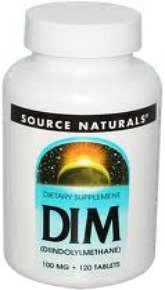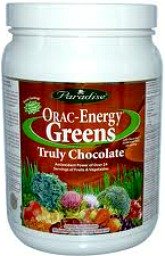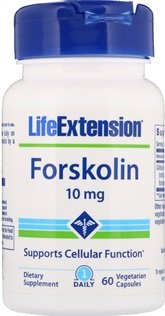Sex Hormones and Heart Disease Connection
Sex hormones and heart disease is one of the most important as well as overlooked factors when it comes to heart disease. Testosterone, estrogen and progesterone have the biggest effect on the body, heart muscle and blood vessels.
To reap the benefits from all of them, you have to make sure that they are balanced, so they work for you and not against you.
The most often problem when it comes to sex hormones and heart disease, is that estrogens, especially the strongest type of estrogen known as estradiol, is high which makes progesterone and free testosterone low.
Although total testosterone is usually low in this case, it can be high in some individuals despite high estrogen, if feedback loop is messed up, which can cause more problems.
SEX HORMONES AND HEART DISEASE - XENOESTROGENS "PART 1"
This is one of the main reason why cancer, depression, anxiety, infertility and heart disease rates are so high these days. Xenoestrogens or environmental hormones are the main cause behind it which can be found in plasctics, pesticids, insecticides, some contraceptive pills, tin cans, lotions(paraben) and other cosmetic and cleaning products. Because of it, food is also contaminated.
Soy proteins are included in wide variety of foods to increase protein quantity of the food, along with soy phytoestrogens. Also meat, eggs and especially diary products can contain estrogens due to animals being treated with all kinds of antibiotics and hormones these days.
Before continuing the story about xenoestrogens, lets first talk about sex hormones and their role in human body and heart function, as they are all important to the point of the story.
SEX HORMONES AND HEART DISEASE - TESTOSTERONE
Testosterone is main male hormone with masculinizing characteristics. It increases muscle size, bone density, strength, makes the voice deeper and promotes growth of beard and body hair. Although it is a male hormone, females need it too but in a lot smaller amounts.
It regulates libido in both sexes, decreases the risk of osteoporosis, enhances cognitive function, improves emotional well-being, boosts confidence, decreases fat, increases energy and improves the condition of the heart and blood vessels.
Effects of testosterone on cardiovascular system is object of many studies. While results of some scientific studies clearly say that high testosterone increases the risk of heart diseases, other say that it actually decreases the risk of heart diseases and stroke.
In my opinion they are both right. To understand why are there such a conflicting results, you need to look past testosterone itself and look further toward testosterone metabolites and other factors which affect it. Only free, unbound testosterone can help reduce the risk of heart disease.
Sex human binding globulin(SHGB) is a type of protein which binds to the testosterone and two types of it's metabolites, estradiol and dihydrotestosterone(DHT).
To acquire the benefits of testosterone you have to ensure that you have enough free T circulating in the blood, by reducing SHBG and that only a fraction of total testosterone is converted to its metabolites, as it should be under the normal circumstances.
In other words, you have to achieve a balanced state. This is much more noticeable in men as they produce ten times more testosterone than women.
SEX HORMONES AND HEART DISEASE - ESTROGEN
Estrogen is main female hormone with feminizing characteristics. It promotes development of female characteristics such as breast growth and it has vital role in female menstrual cycle.
When it comes to cardiovascular system, it can increase HDL or good cholesterol, decrease LDL or bad cholesterol, improve lung function, reduce the risk of heart attack and atherosclerosis.
On the other hand, estrogen has many dangerous side effect if the levels are too high. It is the only hormone, for which is proved that causes not one but several forms of cancer. It increases fat stores which raises the amount of enzyme called aromatase.
Enzyme aromatases testosterone and androstenedione into estrogens. If there is too much estrogen and not enough free testosterone in the blood, it can decrease muscle mass, cause water retention, fat gain, lead to formation of blood clots and increase cortisol which may lead to anxiety, depression and heart problems.
SEX HORMONES AND HEART DISEASE - PROGESTERONE
Progesterone is considered a female hormone and although it has a much bigger role in women, it is vital for men, too. While testosterone has masculinizing and estrogen feminizing effect on human body, progesterone by itself, has no direct effect on developing sexual characteristics.
However, since it is natural inhibitor of powerful androgenic hormone dihydrotestosterone(DHT) which is made from testosterone, it can have feminizing effect. By blocking DHT, there is no one to oppose estrogen which increases feminization, even more. On the other hand, If progesterone levels are normal, then it can actually be very beneficial since it is precursor to several hormones, including testosterone and estrogens.
Also, levels of this precious hormone are equal in men and women, for the first 15 days. During the other 15 days of the month, womens production of progesterone doubles due to menstrual cycle, while progesterone levels remains the same in men, throughout the month.
Progesterone opposes estrogen in women and increases free testosterone in men by inhibiting 5α-reductase enzyme which decreases conversion of free testosterone into dihydrotestosterone(DHT). By doing so, it can help decrease the risk of prostate cancer in men and breast cancer in women.
When it comes to sex hormones and heart disease, progesterone normalizes blood clotting and constriction of the blood vessels thereby decreasing the risk of blood clots and heart attack. It also has role in gum disease which is linked with heart problems. Unbalanced progesterone levels seem to be the main cause of gum disease, whether there is too much or too little of it.
For example, pregnant women often experience sore gums since they are producing massive amounts of progesterone. On the other hand, older people may also have this problem but in their case, the condition is caused by lack of progesterone.
However, its ability to affect other hormones make it very important factor, when it comes to heart disease because of which it is important to keep your progesterone levels on certain levels, whether you are a men or a women.
SEX HORMONES AND HEART DISEASE - XENOESTROGENS "PART 2"
Xenoestrogens are unavoidable as they are in the air we breath, water we drink, food we eat and products we use. The fact is, that we live in the world full of estrogens which goes hand by hand with declining population of men due to lower testosterone levels.
However, women are also affected since xenoestrogens disturb the natural balance of progesterone and estrogen. They raise estrogen, decrease progesterone and free testosterone which leaves a space for many diseases to develop, including heart disease. Add high cortisol caused by chronic stress and you can forget about homeostasis.
SEX HORMONES AND HEART DISEASE - TIPS
Regular whole body detox, especially liver detox can be very effective in fight against xenoestrogens. Milk Thistle and Prunella Vulgaris have shown very effective in improving liver function and normalizing liver enzymes. DIM which is found in crucefireous vegetables can also help detoxify xenoestrogens.
The difference between these two, is that Prunella Vulgaris activates the aryl hydrocarbon receptor(AHR) which can interfere with estrogen, thereby reducing estrogen production.
It can be just what we are looking for, to nullify the effects of xenoestrogens. Women should be careful of how much Prunella Vulgaris they consume since estrogen is still an essential female hormone.
CONCLUSION
The most important thing that you should do to avoid xenoestrogens and other carcinogens, is to eat organic pesticide-free foods. However, living in this point in time, you can't completely avoid xenoestrogens but you can make sure that your body is able to deal with them, by improving liver function.
By getting testosterone, estrogen and progesterone on the appropriate level, you will greatly decrease the risk of sex hormones and heart disease related problems which is associated with aging and declining hormonal production.
- Heart Healthy Diet: Simple Tips and Guidelines
- Learn everything you need to know about heart healthy diet and find the right one for you. Implement few simple tips for immediate benefits.
- Heart Healthy Foods: How to Get the Most from Them
- Heart healthy foods can improve cardiovascular system function. Foods good for the heart are bursting with vitamins, minerals and rejuvenating phytochemicals.
- Herbs for the Heart and Cardiovascular System
- You have heard for hawthorn and garlic but there are few other herbs for the heart which can help in treating heart disease, naturally.
- The Best Heart Health Supplements
- Besides fish oil, there are several heart health supplements which can be useful. This includes Coenzyme Q10, Salicin, vitamin D3 and few others.
- Heart Healthy Spices
- Although there are many heart healthy spices out there, each of them can help prevent and treat heart disease in its own way, thanks to different types of flavonoids in these heart spices.
- Stress and Heart Disease: How are They Connected
- Stress and heart disease are closely related. In order to decrease the risk of heart problems, we have to learn how to handle the stress and treat its consequences, if we are unable to avoid it.
- Cardio Exercises for the Heart and Cardiovascular System
- Cardio exercises are vital part of natural heart disease treatment. However, which kind of heart exercise you should preform, varies from person to person.
- Good vs Bad Cholesterol: How to Improve Cholesterol Values
- Good vs bad cholesterol conflict is somewhat misunderstood. There is no good or bad cholesterol but only high or unbalanced cholesterol.
- Good Fats vs Bad Fats: Nutritional Facts and Guidelines
- What is the real truth when it comes to good fats vs bad fats? How much dietary fats should you consume daily and what are the best food sources of healthy fats?
- High Blood Pressure Remedies
- High blood pressure remedies range from tips and lifestyle modification to herbs and supplements. However, the method that works for someone else, may not work for you.
- Normal Heart Rate: How is Regulated and Influential Factors
- Normal heart rate varies from person to person. Although, age affects resting heart rate, there are many other factors that can raise or decrease heart rate.
- How to Lose Fat: Overlooked Tips for Weight Loss
- How to lose fat is surely one of the most intriguing questions for so many people. However, the answer is very simple. Eat healthy foods, perform fat burning exercises and take care of your hormones.
- Hormones and Heart Disease Connection
- Don't neglect hormones and heart disease connection. If you want to treat or prevent heart disease you have to balance your hormones.
- Heart Disease and Immune System Connection
- Heart disease and immune system connection is often overlooked, while trying to improve cardiovascular system function. However, there are several things you can do to change this.
- Dental Health Heart Disease Connection: Facts and Tips
- Dental health heart disease connection is one of three overlooked factors, along with hormones and immune system. However, with smart and effective approach we can change this.
- Causes of Heart Disease
- There are many causes of heart disease and factors that can increase or decrease your risk for developing heart related problems. Check how to turn the tide in your favour.
- Symptoms of Heart Disease
- There are few main symptoms of heart disease. Find out which are they, how to recognize them as well as my personal experience with some of them.
- Diagnosis of Heart Disease
- Accurate diagnosis of heart disease is the first step toward recovery. You can't start with treatment before you know what kind of disease you have, obviously.
- Treatment for Heart Disease: Medications and Surgeries
- Standard treatment for heart disease consists of surgeries, medications and devices. Which one is right for you, depends on your condition.
- Heart Disease Blog
- This is a blog about natural remedies, personal stories, helpful herbs and supplements, workout program as well as other tips and facts which may help people faced with heart disease.
- Contact Me
- Ask questions and leave comments about this site here.
- About the Author of Heart Health Guide
- About the author of Heart-health-guide.com website.
- Heart Health Guide Sitemap
- This is sitemap of Heart Health Guide.com. If you want to get better overview of informations on this website, you can get it here.
Copyright © - Heart Health Guide - All Rights Reserved.



